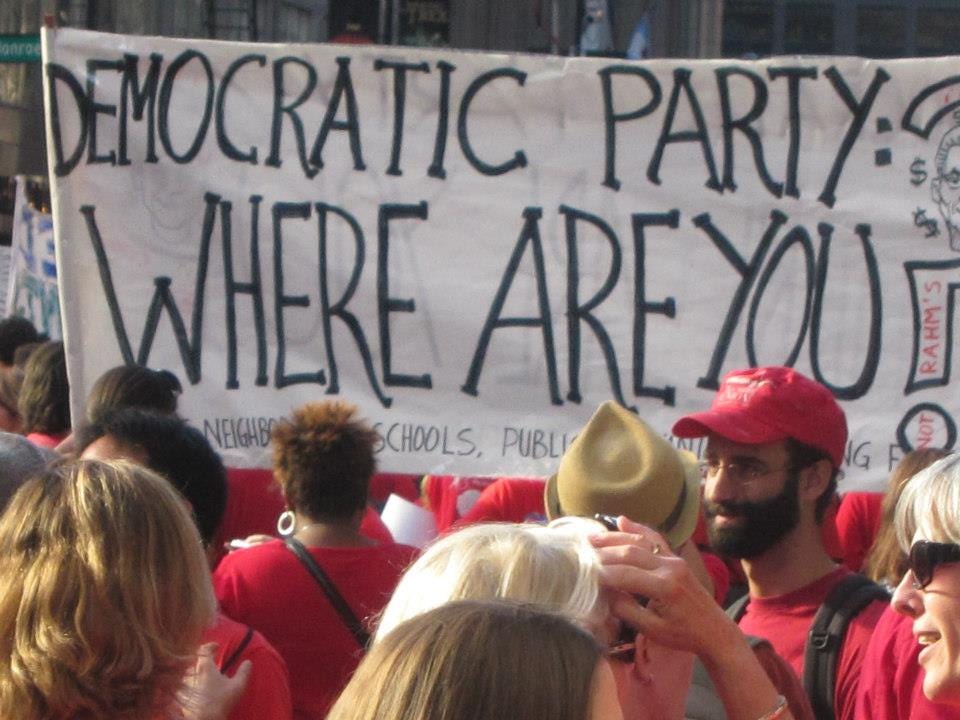The "uncommitted" voter movement rolls on but Illinois doesn't allow it.

Super Tuesday was yesterday and most of you are now aware that 2024 will end like 2020 with Joe Biden and Donald Trump as the two party nominees.
*Sigh*
Never in my voting life-time have two candidates been so unpopular with the majority of U.S. voters.
Ahead of Super Tuesday election results, political commentator Marc Thiessen argued on Fox News that the only person less popular than President Biden is former President Trump. (The Hill)
Thiessen is a former top aide to George W. Bush.
Roughly 30% of Republican voters yesterday said they would not support Trump in the November election, according to exit polling by NBC news.
Even as Trump further builds his massive delegate lead, the exit polls do provide some potential warning signs for him looking ahead to the general election, especially among more moderate and well-educated voters.
In both Virginia, North Carolina and California, around one-third of primary voters answered “no” to the question of whether they will vote for the GOP nominee regardless of who it is (31% in Virginia, 34% in North Carolina and 33% in California).
Meanwhile Joe Biden’s historic unpopularity has been translated to a below the radar rebellion among Democratic voters who are sickened by the administration’s support of Israeli Prime Minister Netanyahu’s scorched earth invasion of Gaza.
Does Kamila Harris’ recent support for a ceasefire represent a divide in the administration or a cover for her boss?
A division or a division of labor?
I would guess it is the second.
Back to yesterday’s Super Tuesday vote.
In states that allow for an uncommitted vote in the primary, the number of Democrats who refuse to give Biden their support continues to surprise many national pundits.
It began as an organized campaign in Michigan that resulted in over 100,000 primary voters pulling the metaphorical lever for uncommitted. The uncommitted peace vote was centered in Dearborn and the University of Michigan campus in Ann Arbor.
Last night the Michigan peace vote was surpassed in Minnesota.
That did not stop Biden from winning the contest handily. But the protest vote provided another data point to suggest that the president has work to do to win back voters who are angry over his approach to the conflict and willing to take it out on him at the ballot box.
The results suggest that his challenges aren’t isolated to the Muslim American community, who were strongly represented in the Michigan primary (although “uncommitted” performed best in the Minnesota counties with significant Somali-American populations), but has also spread to other base Democratic voters. They’re also not necessarily confined to the upper Midwest. In North Carolina, a key battleground state, nearly 13 percent of Democratic of the primary voted “no preference.” (Politico)
Biden’s approval ratings were already poor even before the brutal Israeli assault on Gaza. But his full throated defense of the genocide remains repulsive to many of us.
I cannot in good conscience vote for the man or for any delegates in my 3rd congressional district that are pledged to him.
Unfortunately Illinois does not allow for an uncommitted vote and does not report out the number of write-ins.
This is our legacy from when the Democratic Machine ran the show and using the electoral process for independent action was frowned upon, to say the least.
Why those in Illinois who describe themselves as progressive Democratic elected continue this is for them to explain.
And to those who tell me that by voting uncommitted (or in my own case, leaving the presidential ballot line blank) I am voting for Trump: Nonsense.
This is a primary, not the general election.
The organizers (in Minnesota) wrote ahead of election night that they wanted to “send a clear message to President Biden that he must earn our votes.” (Politico)




